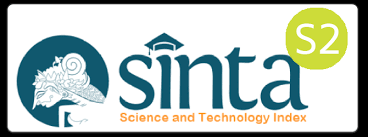QTc Interval Prolongation in Drug-Resistant Tuberculosis Treated with Bedaquiline and Delamanid Under Programmatic Conditions
Abstract
Background: The cardiac safety of regimens containing bedaquiline and delamanid is not well-established, especially in Indonesia. This study aimed to analyze QTc interval during six months of treatment and factors associated with QTc interval prolongation. Methods: A prospective cohort of drug-resistant tuberculosis (DR-TB) patients received regimens containing bedaquiline and delamanid between September 2022 and May 2023 at the outpatient department of MDR-TB of the Dr. Soetomo Hospital. Patients were divided into bedaquiline and bedaquiline-delamanid-containing regimens groups, respectively. QTc interval was evaluated before and until the sixth month of treatment using ECG. QTc interval prolongation was categorized as clinically significant if ≥ 500 ms or QTc difference ≥ 60 ms. Results: Sixty-three (63) DR-TB patients enrolled in this cohort consisting of 51 and 12 patients in the bedaquiline and the bedaquilin-delamanid group, respectively. Grade II and III of QTc interval prolongation was higher in the bedaquiline-delamanid than in the bedaquiline group, 41.7% vs. 8.3%; 15.7% vs. 1.9%, respectively, P-value 0.084. However, the mean difference in QTc interval was < 60 ms between the two groups during six months of treatment, with a P-value ≥ 0.05. Maximum QTc interval was observed after four months of treatment. No patients had serious cardiac events during the study period. Potassium and calcium levels were associated with QTc interval prolongation. Conclusion: Regimens containing bedaquiline-delamanid provide a good safety profile without serious signs of QTc interval prolongation in patients with DR-TB. These regimens should be considered as a programmatic treatment in a clinical setting.
Keywords: Bedaquiline; Delamanid; DR-TB; QTc Interval
Full Text:
PDFDOI: https://doi.org/10.15416/pcpr.v10i2.60987
Refbacks
- There are currently no refbacks.








